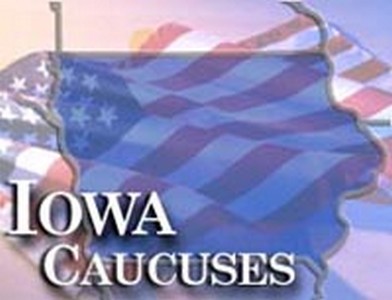Michael Barone has a thoughtful piece on the Iowa caucus in Tuesday’s Wall Street Journal. He writes in “As Iowa Goes, So Goes Iowa” that the Iowa caucus often doesn’t decide who wins the primary, let alone the general election.
Iowa Republican caucuses have a poor record in choosing their party’s nominees. In the five presidential nominating cycles with active Iowa Republican caucus competition, the Hawkeye State has voted for the eventual Republican nominee only twice–in 1996 for Bob Dole, in 2000 for George W. Bush–and only once was the Iowa winner elected president.
Part of the issue Barone notes is just how few Republicans actually participate.
In a state of three million people, a bare 119,000 Republicans showed up for the caucuses [in 2008]. Some 60% of them identified as evangelical or born-again Christians–a far higher percentage than in any presidential contest in any large non-Southern state that year.
By contrast, in the 2010, over 600,000 Iowa Republicans voted in the general election and more than 200,000 voted in the gubernatorial primary. This year fewer Republicans will vote in the Iowa caucus, despite a deeply unpopular incumbent Democratic party.
Why are so few Republicans showing up to vote in Iowa? Perhaps it’s because the Iowa Republican caucus is for insiders.
In the past, evangelicals have tended to pick the candidate in the presidential primaries, but this year, with at least three evangelical-friendly candidates in the race for president, they’ve split the vote. By unintentionally and effectively limiting their influence, the evangelicals have enabled both the Paul and Romney camps to stage a strong showing. If a George Will forecast “libertarian snow” happens, Ron Paul and his die-hard supporters will win the caucus.
Anecdotally much has been made this year about the number of young people involved with the Republican caucus this year. This is largely attributable to Ron Paul. Ron Paul and more accurately, his acolytes, have been spending time doing retail campaigning in the state’s 99 counties, while a number of the other candidates have ignored Iowa entirely. Governor Terry Branstad has complained as much, but Ron Paul isn’t. Paul’s supporters might even push down the median age of the Republican caucus participant from its near 60-year-old age mark. Even if Paul loses the nomination in 2012, his young supporters will be in politics for years to come.
It remains to be seen whether Iowa will decide who “wins” the caucus, but it may yet decide who “winnows” it.

COMMENTS
Please let us know if you're having issues with commenting.